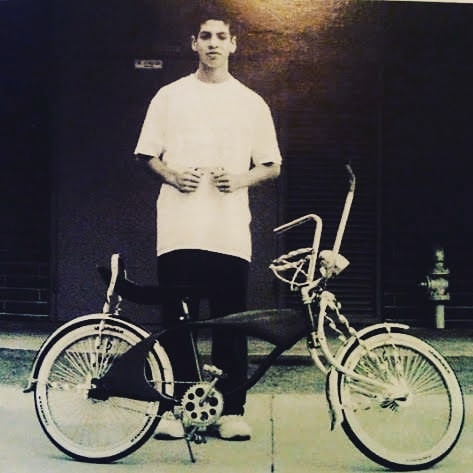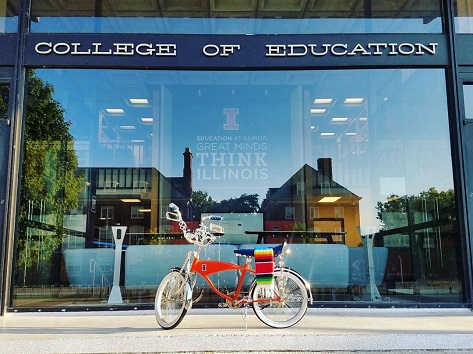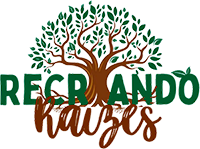About Me
Who Am I?
Hola, bem-vindo. I'm a Ph.D. Candidate at the University of Illinois at Urbana-Champaign within the Education Policy, Organization and Leadership (EPOL) department.
My research concentration is Global Studies in Education. I am a transdisciplinary researcher interested in the future of public and popular education globally, critical pedagogies, epistemic justice, global citizenship, digital governance and public policy, and social entreprenuership and innovation among the Global Majority. My current research is a Community-based Participatory Research (CBPR) approach to developing a digital inclusion and global citizenship initiative among favela community mobilizers within the Baixada Fluminense region of Rio de Janeiro. My research further examines the co-production of local knowledges using appropriate analog and digital/non-digital technologies to transform communities, sustainable development paradigms, and the community educators/mobilizers that support the flourishment of people and planet.
I welcome you to learn about my work and my research to collaborate in making great strides in global public and community education, technology, and innovation for more sustainable and just future.
Where I work
Sustainable Futures Lab
Forum on the Future of Public Education
Why I Work
As a child, I recall running around, playing and joking with my cousins about how many bullet holes we can count on the stucco walls of my Uncle's Chico's house. I grew up normalizing gun shot wounds to family members and even deaths due to gun and gang violence.
My Father emigrated from Guadalajara Jalisco, Mexico in the 70's to pursue the "American Dream" in the United States of America. Hopeful, but with little alternative, his 10 siblings and single mother would settle in one of the most violent cities in the US: Compton, California. My father left Compton at the peak of violence in the early 1990s to the San Gabriel Valley (east Los Angeles county) where he would later bring my Mother, across the US boarder to start our família.
In 1994, we settled in El Monte, California, home to immigrant families looking to work in the local industry. My mother worked in a textile factory nearby and I helped on the weekends to clean other's houses, while my father worked as a metal worker in a dental lab. In 1995, El Monte would garner worldwide attention for exposing the forced labor of 72 Thai nationals who were being held captive in a makeshift factory. This news was shocking, but not surprising to us as many local North and Central American families worked under similar conditions. My mother, like other family members working in the local garment factories can testify to the long hours and limited bathroom breaks to meet production quotas. Even at a young age, I recall the physical toll it had on the hands and body of my mother who would later suffer from chronic joint pain. In high school, although it was a predominately Hispanic student body, there was a clear distinction between students born in the US and students born outside of the US. Although my counsins were the same age, lived in the same home and attended the same high school, only I would return home after school. They, on the other hand, would return at midnight, after their full-time shift. I would often stay awake to greet and call my cousin a "Pitufo" or Smurf because he was always covered in blue dye from sanding denim jeans all night to give designer jeans that stylish washed look.
My experience as a first-generation Chicanx student who attended Title I funded schools (K-12) within a gang-dominated and working-class, immigrant community shaped my motivation to learn about my history, my community, and the world. Frankly, I wanted to understand why some lived more dignified and more just lives than others. Through my global studies education, I came to understood why there are winners and losers within a neoliberal and globalized economy.

As an "at-promise" (compared to a deficit oriented "at-risk") youth, I credit public assistance, education, and after-school community programs for keeping me fed physically and intellectually, while keeping me safe until I gained the strength to persist in my learning. In third grade, my teacher Ms. Ramos, unknowingly, would change the course of my life. In a parent-teacher meeting, for the first time in my life, I would hear someone call me "intelligent" and not a "travieso" (a menace)," which drove me to focus and prove her right. I went from below average grades and fighting in school to earning my first district writing recognition at the end of 3rd grade and earning an academic scholarship 7th to 12th grade. More importantly, I received the means to see beyond my own neighborhood; beyond my own pain. Between spending summers in my family's poor neighborhood in Mexico and my first visit to Rio de Janeiro's favelas, I understood that my community, my family, and my love extended well beyond any borders. I no longer felt alone. I felt united: empowered. Through the power of education, community, and the affordances of digital technology, I have been able to maintain relationships of love and solidarity across the world to protect people and planet.
Today, I entrust my faith in education "as the practice of freedom" to transform the world, as it did my own.
"The academy is not paradise. But learning is a place where paradise can be created. The classroom, with all its limitations, remains a location of possibility. In that field of possibility we have the opportunity to labor for freedom, to demand of ourselves and our comrades, an openness of mind and heart that allows us to face reality even as we collectively imagine ways to move beyond boundaries, to transgress. This is education as the practice of freedom." -bell hooks, Teaching to Transgress: Education as the Practice of Freedom




